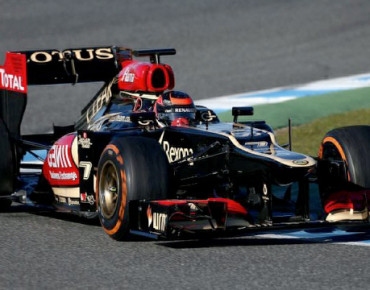Forget Fuel: Data Drives F1 Racing

In a sport where the difference between first and second is measured in milliseconds, and even the most subtle of engineering adjustments can mean placing first instead of last, going digital isn’t just an advantage—it’s a necessity. And for Formula One racing teams like Lotus, technologies such as the cloud and data analytics are becoming the backbone to support more and more decision making.
With EMC there as their technology partner, Graeme Hackland, IT and IS director for the Lotus F1 team says that data has taken over as the team’s driving force.
“Everything we do is data-driven: from designing to manufacturing, to understanding performance when the car is running on the track,” said Hackland during an interview with Gulf Business. “To be a step ahead, we need to be able to correlate all this data so that we can understand what solutions must be given priority and where to focus our resources.”
According to Hackland, the team’s goal is to eventually make use of public clouds to share design, simulation and race-day performance data between engineers, technicians and the drivers themselves. To that end, he said that building a private cloud with EMC’s help was the first step toward achieving that goal.
“F1 fans see only the tip of the pyramid; the race team in action during a GP weekend,” Hackland said. “But behind the scenes theres is another race going on—a race fought by more than 500 members of staff including engineers, IT specialists and technicians.”
The race is ultimately to speed up the breakneck speed that F1 is known for, both on the track and off. While many are already familiar with the sport’s reputation for lightning fast cars, Formula One also sets a standard in design and manufacturing cycles that shows that designing and turning out a new car can happen in weeks instead of month or years. But Hackland says that meeting these deadlines means not just using big data, but creating smart data.
“Many of these companies are IT-related and this is a reflection of the importance this area has in our strategy,” Hackland said of F1 technology partners. “The quality of data is not less important than the quantity. We must constantly improve the way we handle data, make it available and accessible to coherent criteria.”
Hackland hopes that with EMC’s help, Lotus will produce a Championship-winning car by 2015.










